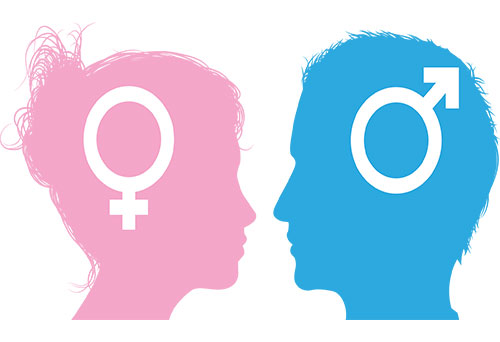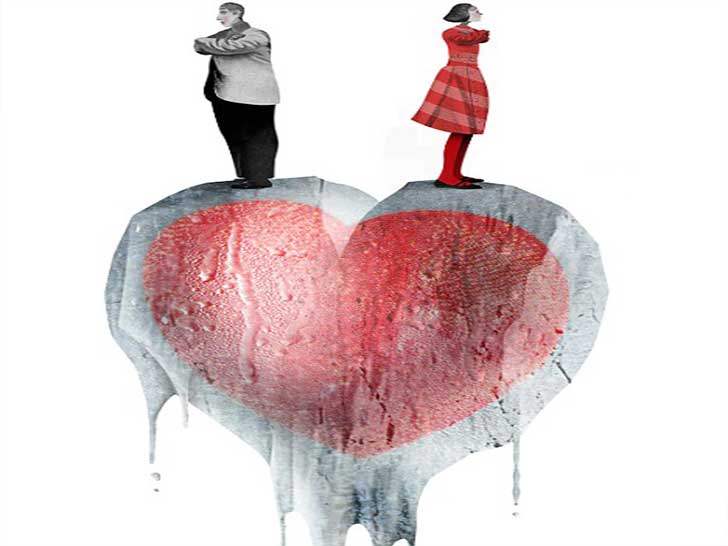اخبار روانشناسی ندای مهر
|
1
Not at all
|
2
somewhat
|
3
moderately
|
4
very
|
5
extremely
|
|
1. heart palpitation
|
1
|
2
|
3
|
4
|
5
|
|
2. pressure or heavy feeling in chest
|
|||||
|
3. numbness in arms or legs
|
|||||
|
4. tingling in the fingertips
|
|||||
|
5. numbness in another part of your body
|
|||||
|
6. feeling short of breath
|
|||||
|
7. dizziness
|
|||||
|
8. blurred or distorted vision
|
|||||
|
9. nausea
|
|||||
|
10. having "butterflies" in your stomach
|
|||||
|
11. feeling a knot in your stomach
|
|||||
|
12. having a lump in your throat
|
|||||
|
13. wobbly or rubber legs
|
|||||
|
14. sweating
|
|||||
|
15. a dry throat
|
|||||
|
16. feeling disoriented and confused
|
|||||
|
17. feeling disconnected from your body: only partly present
|
|||||
|
18. other (please describe and rate them)
|
|||||
|
. . . . . . . . . . . . . . . . . . . . . .. . . . . . . . .
|
|||||
|
. . . . . . . . . . . . . . . . . . . . . .. . . . . . . . .
|
|||||
|
. . . . . . . . . . . . . . . . . . . . . .. . . . . . . . .
|
Inspiration Scale
|
1a. How often does this happen?
|
1
never
|
2
|
3
|
4
|
5
|
6
|
7
very often
|
|
1b. How deeply or strongly (in general)?
|
1
not at all
|
2
|
3
|
4
|
5
|
6
|
7
very deeply
or strongly
|
|
2a. How often does this happen?
|
1
never
|
2
|
3
|
4
|
5
|
6
|
7
very often
|
|
2b. How deeply or strongly (in general)?
|
1
not at all
|
2
|
3
|
4
|
5
|
6
|
7
very deeply
or strongly
|
|
3a. How often does this happen?
|
1
never
|
2
|
3
|
4
|
5
|
6
|
7
very often
|
|
3b. How deeply or strongly (in general)?
|
1
not at all
|
2
|
3
|
4
|
5
|
6
|
7
very deeply
or strongly
|
|
4a. How often does this happen?
|
1
never
|
2
|
3
|
4
|
5
|
6
|
7
very often
|
|
4b. How deeply or strongly (in general)?
|
1
not at all
|
2
|
3
|
4
|
5
|
6
|
7
very deeply
or strongly
|
|
CHIPS
|
|||||
|
Mark the number for each statement that best describes HOW MUCH THAT PROBLEM HAS BOTHERED OR DISTRESSED YOU DURING THAT PAST TWO WEEKS INCLUDING TODAY. Mark only one number for each item. At one extreme‚ 0 means that you have not been bothered by the problem. At the other extreme‚ 4 means that the problem has been an extreme bother.
|
|||||
|
HOW MUCH WERE YOU BOTHERED BY:
|
|||||
|
1. Sleep problems (can't fall asleep‚ wake up in middle of night or early in morning)
|
0
|
1
|
2
|
3
|
4
|
|
2. Weight change (gain or loss of 5 libs. or more)
|
0
|
1
|
2
|
3
|
4
|
|
3. Back pain
|
0
|
1
|
2
|
3
|
4
|
|
4. Constipation
|
0
|
1
|
2
|
3
|
4
|
|
5. Dizziness
|
0
|
1
|
2
|
3
|
4
|
|
6. Diarrhea
|
0
|
1
|
2
|
3
|
4
|
|
7. Faintness
|
0
|
1
|
2
|
3
|
4
|
|
8. Constant fatigue
|
0
|
1
|
2
|
3
|
4
|
|
9. Headache
|
0
|
1
|
2
|
3
|
4
|
|
10. Migraine headache
|
0
|
1
|
2
|
3
|
4
|
|
11. Nausea and/or vomiting
|
0
|
1
|
2
|
3
|
4
|
|
12. Acid stomach or indigestion
|
0
|
1
|
2
|
3
|
4
|
|
13. Stomach pain (e.g.‚ cramps)
|
0
|
1
|
2
|
3
|
4
|
|
14. Hot or cold spells
|
0
|
1
|
2
|
3
|
4
|
|
15. Hands trembling
|
0
|
1
|
2
|
3
|
4
|
|
16. Heart pounding or racing
|
0
|
1
|
2
|
3
|
4
|
|
17. Poor appetite
|
0
|
1
|
2
|
3
|
4
|
|
18. Shortness of breath when not exercising or working hard
|
0
|
1
|
2
|
3
|
4
|
|
19. Numbness or tingling in parts of your body
|
0
|
1
|
2
|
3
|
4
|
|
20. Felt weak all over
|
0
|
1
|
2
|
3
|
4
|
|
21. Pains in heart or chest
|
0
|
1
|
2
|
3
|
4
|
|
22. Feeling low in energy
|
0
|
1
|
2
|
3
|
4
|
|
23. Stuffy head or nose
|
0
|
1
|
2
|
3
|
4
|
|
24. Blurred vision
|
0
|
1
|
2
|
3
|
4
|
|
25. Muscle tension or soreness
|
0
|
1
|
2
|
3
|
4
|
|
26. Muscle cramps
|
0
|
1
|
2
|
3
|
4
|
|
27. Severe aches and pains
|
0
|
1
|
2
|
3
|
4
|
|
28. Acne
|
0
|
1
|
2
|
3
|
4
|
|
29. Bruises
|
0
|
1
|
2
|
3
|
4
|
|
30. Nosebleed
|
0
|
1
|
2
|
3
|
4
|
|
31. Pulled (strained) muscles
|
0
|
1
|
2
|
3
|
4
|
|
32. Pulled (strained) ligaments
|
0
|
1
|
2
|
3
|
4
|
|
33. Cold or cough
|
0
|
1
|
2
|
3
|
4
|
|
I appreciate other people strongly agree not disagree strongly
|
|
more because of my illness agree sure disagree
|
|
5 4 3 2 1
|
|
|
strongly agree not disagree strongly
agree sure disagree
|
|
1. I appreciate life more because of my illness
|
5 4 3 2 1
|
|
2. My illness gave me a new start in life
|
5 4 3 2 1
|
|
3. My life is much better now than it was before
|
5 4 3 2 1
|
|
4. My illness has made me live life to its fullest
|
5 4 3 2 1
|
|
5. Because of my illness I find it easier to accept what life has in store
|
5 4 3 2 1
|
|
6. My illness made me think about the true purpose of life
|
5 4 3 2 1
|
|
7. My religious/spiritual beliefs deepened because of my illness
|
5 4 3 2 1
|
|
8. I am now more open to other religions because of my illness
|
5 4 3 2 1
|
|
9. My illness made me a better person
|
5 4 3 2 1
|
|
10. I became a happier person because of my illness
|
5 4 3 2 1
|
|
11. I am a calmer person because of my illness
|
5 4 3 2 1
|
|
12. My illness made me more mature
|
5 4 3 2 1
|
|
13. My illness made me a more tolerant person
|
5 4 3 2 1
|
|
14. My illness made me realise that I matter as a person
|
5 4 3 2 1
|
|
15. My illness gave me more confidence
|
5 4 3 2 1
|
|
16. I am less concerned about failure because of my illness
|
5 4 3 2 1
|
|
17. My illness gave me permission to do things for myself
|
5 4 3 2 1
|
|
18. My illness made me a more determined person
|
5 4 3 2 1
|
|
19. My illness helped me find myself
|
5 4 3 2 1
|
|
20. My illness made me more aware of my strengths
|
5 4 3 2 1
|
|
21. Through my illness I discovered a talent I didn’t know I had
|
5 4 3 2 1
|
|
22. I can face whatever is around the corner because of my illness
|
5 4 3 2 1
|
|
23. My illness encouraged me to reflect on how I feel about myself.
|
5 4 3 2 1
|
|
24. My illness made me face up to problem areas of my life
|
5 4 3 2 1
|
|
25. My illness strengthened my relationships with others
|
5 4 3 2 1
|
|
26. My illness made me less concerned with the approval of others
|
5 4 3 2 1
|
|
27. Because of my illness I have more to offer other people
|
5 4 3 2 1
|
|
28. My illness made me more at ease with others
|
5 4 3 2 1
|
|
29. I see others in their true colours because of my illness
|
5 4 3 2 1
|
|
30. My illness gave me the opportunity to meet new people
|
5 4 3 2 1
|
|
31. My illness taught me how to stand up for myself
|
5 4 3 2 1
|
|
32. My illness made me put an end to troublesome relationships
|
5 4 3 2 1
|
|
33. My illness made me less judgmental of others
|
5 4 3 2 1
|
|
34. I have been an inspiration to others
|
5 4 3 2 1
|
|
35. People can be more open with me since my illness
|
5 4 3 2 1
|
|
36. My illness changed other people for the better
|
5 4 3 2 1
|
|
37. My illness changed other people’s perception of me for better
|
5 4 3 2 1
|
|
38. Other people appreciate me more because of my illness
|
5 4 3 2 1
|
|
1
|
Over the last 2 weeks‚ how often have you been bothered by any of the following problems?
|
||||
|
|
a. Little interest or pleasure in doing things
|
Not
at all
|
Several
days
|
More than
half the days
|
Nearly
every day
|
|
|
b. Feeling down‚ depressed‚ or hopeless
|
|
|
|
|
|
|
c. Trouble falling or staying asleep‚ or sleeping too much
|
|
|
|
|
|
|
d. Feeling tired or having little energy
|
|
|
|
|
|
|
e. Poor appetite or overeating
|
|
|
|
|
|
|
f. Feeling bad about yourself‚ or that you are a failure‚ or have let yourself or your family down
|
|
|
|
|
|
|
g. Trouble concentrating on things‚ such as reading the newspaper or watching television
|
|
|
|
|
|
|
h. Moving or speaking so slowly that other people could have noticed. Or the opposite—being so fidgety or restless that you have been moving around a lot more than usual
|
|
|
|
|
|
|
i. Thoughts that you would be better off dead‚ or of hurting yourself in some way
|
|
|
|
|
|
2. Questions about anxiety
|
NO
|
YES
|
|
a. In the last 4 weeks‚ have you had an anxiety attack suddenly feeling fear or panic?
If you checked "NO‚" go to question 3.
|
|
|
|
b. Has this ever happened before?
|
|
|
|
c. Do some of these attacks come suddenly out of the blue—that is‚ in situations where you don't expect to be nervous or uncomfortable?
|
|
|
|
d. Do these attacks bother you a lot or are you worried about having another attack?
|
|
|
|
e. During your last bad anxiety attack‚ did you have symptoms like shortness of breath‚ sweating‚ your heart racing or pounding‚ dizziness or faintness‚ tingling or numbness‚ or nausea or upset stomach?
|
|
|
|
4. In the last 4 weeks‚ how much have you been bothered by any of the following problems?
|
Not
bothered
|
Bothered
a little
|
Bothered
a lot
|
|
a. Worrying about your health
|
|
|
|
|
b. Your weight or how you look
|
|
|
|
|
c. Little or no sexual desire or pleasure during sex
|
|
|
|
|
d. Difficulties with husband/wife‚ partner/lover‚ or boyfriend/girlfriend
|
|
|
|
|
e. The stress of taking care of children‚ parents‚ or other family members
|
|
|
|
|
f. Stress at work outside of the home or at school
|
|
|
|
|
g. Financial problems or worries
|
|
|
|
|
h. having no one to turn to when you have a problem
|
|
|
|
|
i. Something bad that happened recently
|
|
|
|
|
j. Thinking or dreaming about something terrible that happened to you in the past—like your house being destroyed‚ a severe accident‚ being hit or assaulted‚ or being forced to commit a sexual act
|
|
|
|
|
5. In the last year‚ have you been hit‚ slapped‚ kicked‚ or otherwise physically hurt by someone‚ or has anyone forced you to have an unwanted sexual act?
|
NO
|
YES
|
|
7. Are you taking any medication for anxiety‚ depression‚ or stress?
|
NO
|
YES
|
|
a. Which best describes your menstrual periods?
|
|
|
Periods are unchanged
|
|
|
No periods because pregnant or recently gave birth
|
|
|
Periods have become irregular or changed in frequency‚ duration‚ or amount
|
|
|
No periods for at least a year
|
|
|
having periods because taking hormone replacement (estrogen) therapy or oral contraceptives
|
|
|
b. During the week before your period starts‚ do you have a serious problem with your mood—like depression‚ anxiety‚ irritability‚ anger‚ or mood swings?
|
NO
|
YES
|
|
c. If YES‚ do these problems go away by the end of your period?
|
NO
|
YES
|
|
d. Have you given birth within the last 6 months?
|
NO
|
YES
|
|
e. Have you had a miscarriage within the last 6 months?
|
NO
|
YES
|
|
f. Are you having difficulty getting pregnant?
|
NO
|
YES
|
|
1
|
Over the last 2 weeks‚ how often have you been bothered by any of the following problems?
|
||||
|
|
1. Little interest or pleasure in doing things
|
Not
at all
|
Several
days
|
More than
half the days
|
Nearly
every day
|
|
|
2. Feeling down‚ depressed‚ or hopeless
|
|
|
|
|
|
|
3. Trouble falling or staying asleep‚ or sleeping too much
|
|
|
|
|
|
|
4. Feeling tired or having little energy
|
|
|
|
|
|
|
5. Poor appetite or overeating
|
|
|
|
|
|
|
6. Feeling bad about yourself‚ or that you are a failure‚ or have let yourself or your family down
|
|
|
|
|
|
|
7. Trouble concentrating on things‚ such as reading the newspaper or watching television
|
|
|
|
|
|
|
8. Moving or speaking so slowly that other people could have noticed. Or the opposite—being so fidgety or restless that you have been moving around a lot more than usual
|
|
|
|
|
|
|
9. Thoughts that you would be better off dead‚ or of hurting yourself in some way
|
|
|
|
|
|
No. of
items
|
Observed
Range
|
Mean
|
Standard
Deviation
|
Internal Consistency
Reliability
|
Test-Retest
Reliability
|
|
9
|
0-23
|
6.40
|
5.73
|
0.88
|
NA
|
|
1.
|
By restricting what one eats‚ one can lose weight.
|
|
2.
|
When people gain weight‚ it is because of something they have done or not done.
|
|
3.*
|
A thin body is largely a result of genetics.
|
|
4.*
|
No matter how much effort one puts into dieting‚ one’s weight tends to stay about the same
|
|
5.*
|
One’s weight is‚ to a great extent‚ controlled by fate.
|
|
6.*
|
There is so much fattening food around that losing weight is almost impossible.
|
|
7.*
|
Most people can only diet successfully when other people push them to do it.
|
|
8.
|
having a slim and fit body has very little to do with luck.
|
|
9.
|
People who are overweight lack the willpower necessary to control their weight.
|
|
10.
|
Each of us directly is responsible for our weight.
|
|
11.
|
Losing weight is simply a matter of wanting to do it and applying yourself.
|
|
12.*
|
People who are more than a couple of pounds overweight need professional help to lose weight.
|
|
13.
|
By increasing the amount one exercises‚ one can lose weight.
|
|
14.*
|
Most people are at their present weight because that is the weight level that is natural for them.
|
|
15.
|
Unsuccessful dieting is due to lack of effort.
|
|
16.*
|
In order to lose weight‚ people must get a lot of encouragement from others.
|

-

مزیت های زندگی زوجین هردو شاغل چیست؟
کارشناس ندای مهر (مشاوره خانواده) -

-

از دید مشاور ازدواج علت سرد شدن رابطه زوج قبل از مراسم ازدواج چیست؟
کارشناس ندای مهر (مشاوره ازدواج) -

بررسی کیفیت زندگی زوج های هر دو شاغل؟
کارشناس ندای مهر (مشاوره خانواده) -

معجون معجزه آسا برای ایجاد صمیمیت بین همسران در خانواده
کارشناس ندای مهر (مشاوره خانواده)







